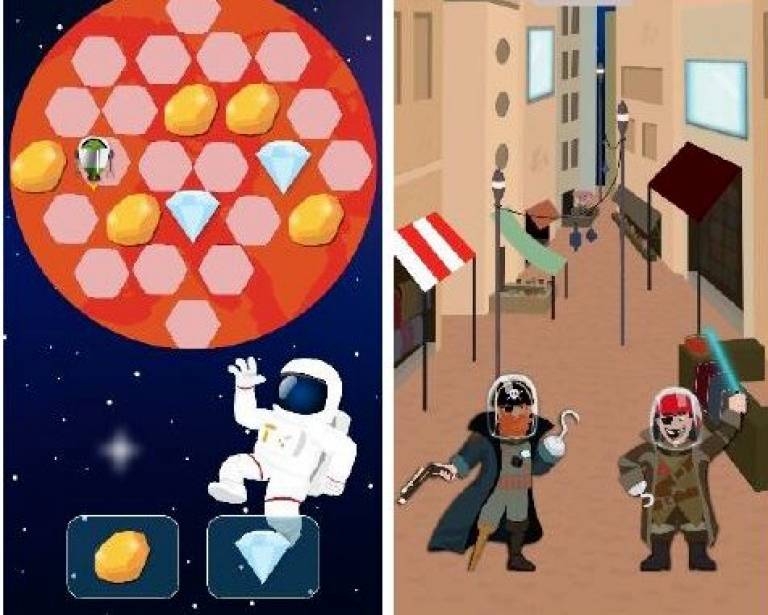A new app explores the link between brain development and mental health
17 December 2020
Why do most mental health illnesses first manifest before adulthood? Neuroscientists from UCL have launched a smartphone app to investigate how brain development is linked to mental health in a new citizen science project.

The ‘Brain Explorer’ app uses the latest insights from neuroscience research to investigate how the brain functions through a series of games aimed at all ages. By playing these games, people can learn about their own brain functions, and at the same time help the researchers to better understand how brain functions are related to the emergence of mental health problems.
Lead scientist Dr Tobias Hauser, from Queen Square Institute of Neurology, said: “We know that the brain changes substantially during adolescence but we do not know how impaired brain development causes mental health problems. This app will help us understand why mental health problems arise during adolescence.”
A better understanding of how abnormal brain development leads to mental health problems will allow researchers to build new models to predict emerging psychiatric illnesses and could help develop novel interventions.
The Brain Explorer app is a citizen science project that allows everyone to be a researcher and to help understand the mysteries of the brain. In citizen science, the public will directly contribute to research, and, with Brain Explorer, can even do so from their couch at home.
“It is super important to us that everyone can contribute to our research. Mental health affects us all and we want everyone to have a voice and help us discover how the brain is linked to mental health,” said Dr Hauser. The app will allow the researchers to study the mechanisms between changes in the brain and the development of mental health disorders.
The Brain Explorer app is unique because it combines cutting-edge research with a playful and engaging user experience. All brain games and questionnaires are embedded in an outer space game universe. Users are rewarded for their contributions and can win trophies to unlock hidden games. They can compare their own brain performance to others and try to beat their own high scores.
Everyone is invited to download the app and to contribute to science – old and young, both those with and without mental health disorders. Using citizen science not only helps Dr Hauser’s team to collect ‘big data’ from the general population, but also makes the research process much more transparent to the public, a critical measure to counteract the growing scepticism towards science.
Dr Hauser’s team is particularly interested in those mental health problems that are often overlooked. Many mental health disorders, such as obsessive-compulsive disorder (OCD), are common in the population (approx. 1 in 30 people are affected), but are often hidden from public perception. This is particularly problematic as people suffering from OCD often struggle to get appropriate help in time, and research into these disorders is seriously underfunded so researchers still know very little about conditions like OCD.
This citizen science project is conducted at the Max Planck Centre UCL for Computational Psychiatry and Ageing Research, and the Wellcome Centre for Human Neuroimaging at UCL. It is supported by grants from Wellcome and the Royal Society, Jacobs Foundation, and the Medical Research Foundation.
Links
- Find the app in Apple and Android App-Store or on www.brainexplorer.net
- Website
- Video
 Close
Close

